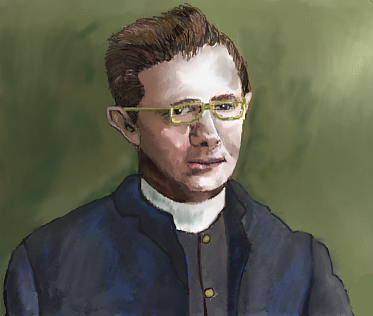
|

|
When Did Unitarianism Come to Hull? asks Adrian Worsfold

Whitaker, Hull Minister 1907-11,
who had a conservative theologyRev. Titus Cordingley, who moved from Dob Lane, Newton, to Bowl Alley Lane, Hull, in 1755 or 1756, was Socinian ('ordinary comprehension' of the non-trinitarian Bible) and died nearly two years later aged 36. Next there was York-born John Beverley, whose only ministry was at Hull from 1757. A Unitarian, Rev. William Graham, of Mixenden, preached at his ordination in 1758. Beverley kept his Unitarian view regarding the person of Christ quiet. He had been educated in the relative freedom of Scotland at Glasgow University. He died on 27 May 1812 and was buried in the chapel at Bowl Alley Lane. In the portrait of John Beverley is seen a book The Life of Socinus.
The first declared Unitarian minister was William Severn. Removed from his home at 16 for his Methodism, he became a travelling preacher and confidant of John Wesley, the founder of Methodism. He studied at Edinburgh, and became Unitarian with ministries at Hinckley, Kidderminster and Hull from 1806. He died aged 59 on June 22nd, 1814. Regarding Kidderminster's mission to the young in 1809, he said to a Joseph Hopkins: "The Methodists must have the influx of that class of society who are devoutly ignorant" and the proper strategy for Unitarians was to concentrate on "the thinking part of the young people amongst you." Unitarians do not preach the heat of hell-fire but "are undoubtedly cold Christians, or if you will, cold philosophizing Christians".
Adrian Worsfold
Pluralist - Liberal and Thoughtful